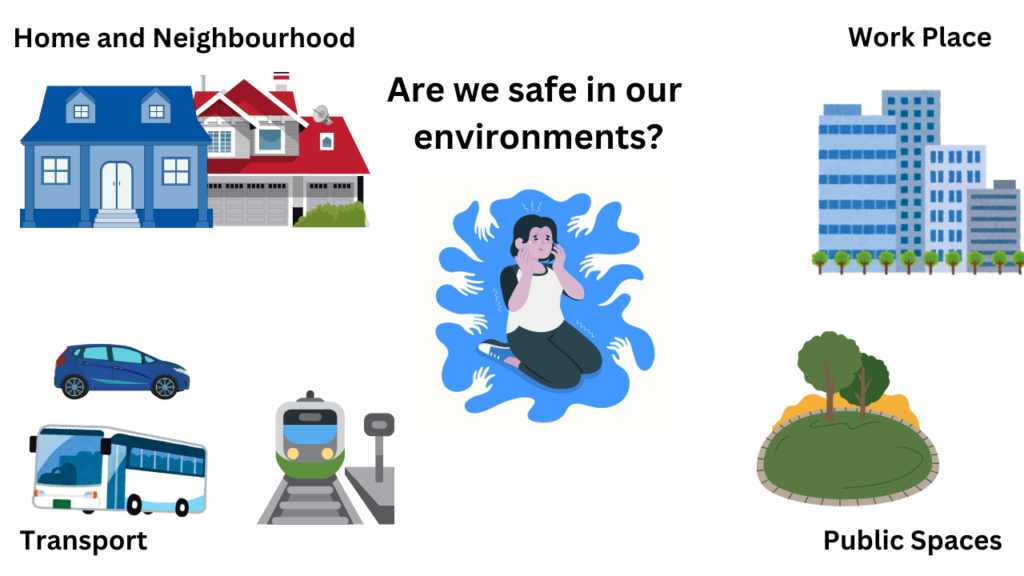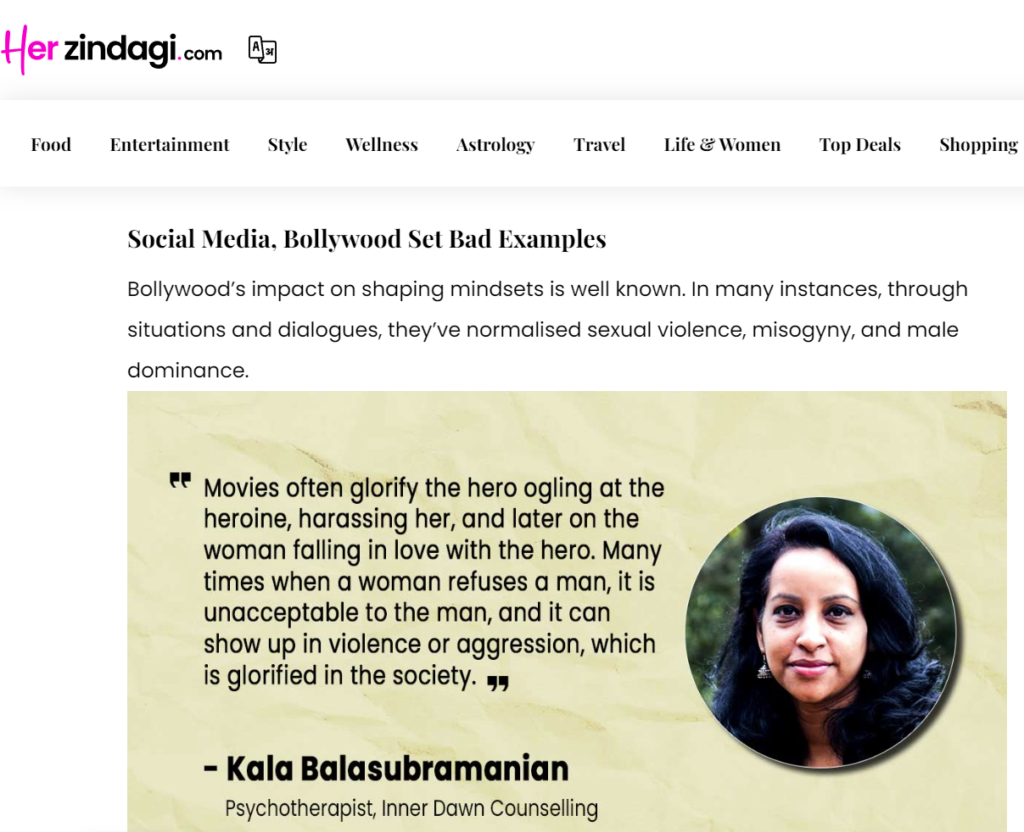Is There Adequate Safety For Women In Our Society?

As women, do we experience adequate safety in our own environments? Be it at home or neighbourhood, at workplace, when we commute in public or private transportation, in public spaces, do we women feel safe?
The reporting of rape, child sexual abuse, sexual harassment etc has increased over time but it is also true that so many more remain unreported. Terrible crimes do put a spotlight on the issue but for a limited period of time. Patriarchy enables gender-based violence – such as female foeticide and infanticide; molestation and sexual assault of children, women, and geriatric women; intimate partner violence; assault/ murder of women in broad daylight who refuse advances; etc., all get reported in media.
Sadly, our collective attention span as a society is very low. When something happens, there is so much of media focus and attention. Conversations happen around it. And very shortly our attention moves on to the next event.
Normalizing and trivializing harassment
On the other hand we as a society normalize and trivialize many kinds of harassment. Let me tell you what I mean from a few of my personal experiences.
When I was in school, in college, and even when I started working, everyday commuting using public transportation buses was a necessity in the metropolitan city where I grew up. Every single day, I have been touched inappropriately on the buses by men, or I have seen other women being harassed.
Who knows about this? Everyone who uses public transport. What did we do? Sometimes we women would use safety pins to dissuade the harasser. It was taken as a given that harassment was part of the daily routine that I/we women had to endure. It was normalized and accepted that nothing could be done about it. I ask myself, did I do enough?
Why am I talking about this? Why is it important that we talk about this? It is important that we don’t deny our pain and that we don’t normalize our pain.
Harassment happens at all levels, in all environments, and at all social and economic levels
Ogling – Harassment – Groping – Stalking – Intimidation – Flashing/Exposing – Violence – Rape – Murder they are all problems on a continuum of violence. The list is by no stretch of imagination exhaustive.
And when we keep quiet about it when it happens, where it happens, we are condoning these actions. Whether it happens to us or someone in our vicinity, our silence emboldens the perpetrator to take it to the next level, and so on.
Even distracting the harasser by talking loudly next to them, getting them to notice that they are being watched, or making a conversation with the harassed person, can make the harasser think for a moment, may hesitate or be dissuaded in their actions. Ensure that you don’t put yourself at risk. Call others for help if needed. https://rainn.org/articles/street-harassment
In your own family or social circles, when you see harassment, discrimination or victim blaming happen, do you say or do something about it? It may be an uncomfortable conversation and it is possible that you may not be able to convince them. Yet, is it worth using your voice? Is it worth speaking up?
No place for apathy and resignation. Taking responsibility for safety in our own spaces the need of the hour
If we are to consider ourselves a civilized society – each one of us needs to take responsibility – wherever and whenever any kind of harassment happens, to address it right there – to nip it in the bud.
What is so painful, is our apathy/indifference/resignation towards these attitudes and behaviours. The entire country cannot be policed 24*7. Police cannot protect us inside our homes. The societal attitude should change. And who is the society? It is you, me, and the people around us in our family, friends, colleagues, neighbours to start with.
As long as we have a culture of objectification, victim blaming, discrimination, and glorifying violence we cannot hope for change, we cannot hope to feel safe. A change that would bring safety and progress for all of us.
How come we are becoming a society without a conscience? How come there is no basic understanding of what is decency and what is not? As a civilized society, if we want to bring about adequate safety for women, I believe that change needs to happen from both a bottom-up approach and a top-down approach. What do I mean by that?
What can be done? How can you and I contribute to build safety for women?
Bottom-up approach
It all starts in our own homes, our families. To really challenge patriarchal norms. Teach equality and respect for each other. Teach and learn human values.
School & colleges – Effective Education – on sexuality, sex, consent, respect, empathy, gender.
Organizations – Even today there is more than a 20% wage gap between men and women even at corporates for the same job. Diversity, inclusion, and equality should be a reality rather than just buzzwords.
Systemic changes needed to bring in adequate safety
Top-down approach
Stricter laws – Laws with no teeth, laws with loopholes, laws with no effective deterrent consequences are not of use. These need to be amended and strengthened to act as a deterrent.
Good laws are of no use without effective implementation of the laws. Government, Police, and other agencies need to be sensitized to the trauma and the plight of the survivor. They need to act effectively to support and protect the vulnerable and bring the perpetrators to justice.
Quick and effective completion of the judicial process. If the cases take 8 / 10 / 15 years to complete, then of course, the conviction rate will be dismal. Justice delayed is justice denied.

Inner Dawn counsellor Kala’s views featured in HerZindagi.com of Jagran New Media: A Decade After Nirbhaya: Unraveling India’s Enduring Rape Culture
